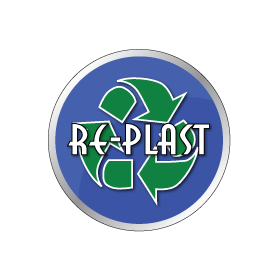Is recycling the new manufacturing?
Hamilton is home to an increasing number of companies that are taking trash and turning it into treasure. Think salad dressing, soap, steel and Styrofoam. Local companies are diverting a whole host of items from landfills, giving them a new purpose, and in the process, creating big business.
Lisa Grace Marr reports on the growing trend.
Click here to view the online article!
Bob Dymianiw is a bit of a plastics superman.
He has near X-ray vision that can see through any plastic and tell you what it’s made of. He can heap large vats of plastic bits and get them ready to be reused as blue boxes, juice boxes or bins. He has the strength to take in more “garbage plastic.”
And he doesn’t need a cape to do it.
That’s because he has Re-Plast — his plastics recycling and processing company in an old 14,000-square-foot factory on Hillyard Street just off Burlington.
Dymianiw was a plastics broker for a number of years — taking industrial plastic waste from manufacturers such as rejected bottles, film, PVC and even the city’s own broken blue and green boxes and finding buyers who would break it down and reuse it.
Through that work, he learned there are few plastics processors in Ontario that can take multiple forms of industrial product and grind them down to a reusable resource.
He launched Re-Plast a year and a half ago in the old American Can plant on Hillyard, and now has five employees. He plans for rapid growth in 2014 to double staff and processing equipment.
Dymianiw said recycled plastic materials are among the most stable in the industry. In addition, unlike the plastic ketchup bottles and juice containers we toss into the recycling blue boxes at home, the plastics Dymianiw gets from industry are relatively clean, sorted and come in large volumes. But he said there’s a catch.
“People who get in this business and think there’s money in it,” he said. “If you don’t know what you’re looking at, you don’t know what the value is. There is a percentage of plastics that are not recyclable and they aren’t identified as such. The fear of everyone in plastics (processing) is if you mistakenly blend two materials together, then it becomes garbage. We’re very diligent ourselves that it is only that material and not anything else.”
On top of that, many manufacturers aren’t aware that what they are squeezing in a compactor has value — that it’s a resource that can be recovered.
So there’s a lot of education in a sales pitch to customers.
“We do a free assessment, and I rarely get anyone who says no,” said Dymianiw. “They say they have a recycling program but that usually means they put cardboard in a bin and recycle office paper. We identify recyclables and provide a paper on how to recycle that — you can divert material out of a compactor. I’ll say we’re going to save you money on disposal fees and you’re going to divert it from landfill.
“That contributes to their sense of corporate responsibility, and it’s becoming more top of mind.”

